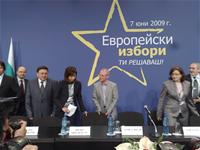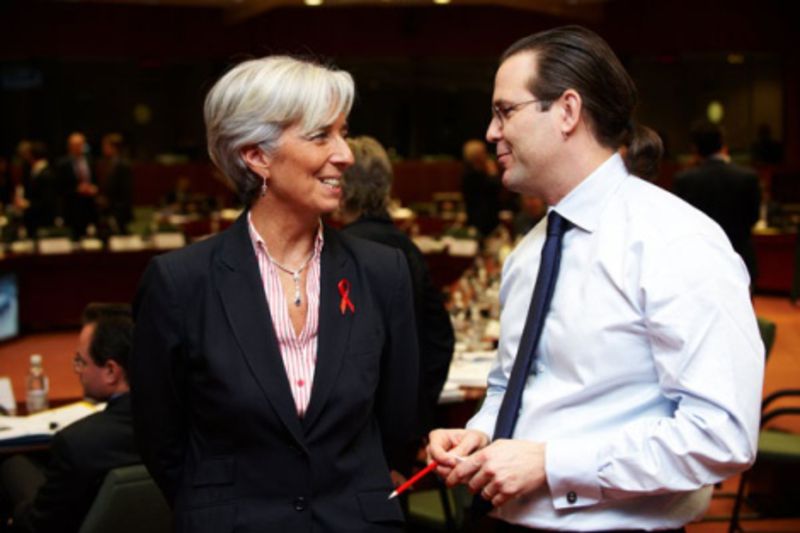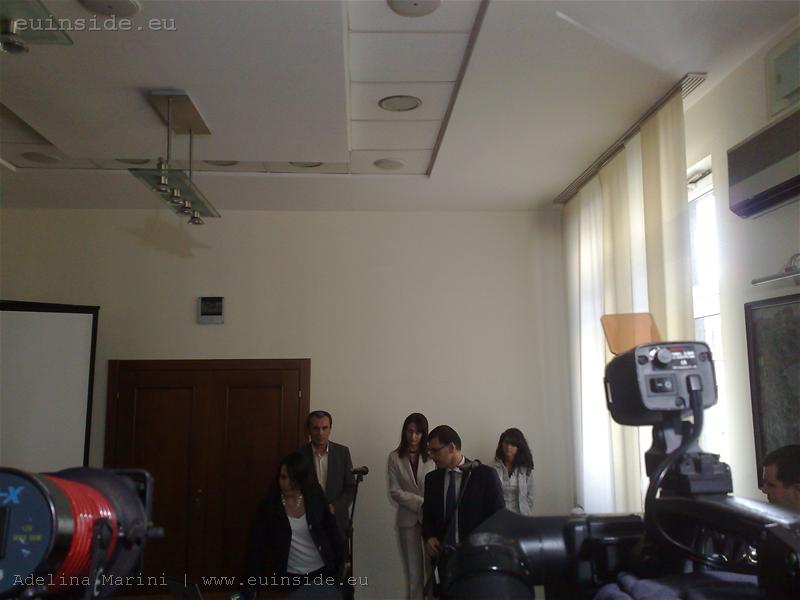The strategy of the DPS for national security is dangerous, according to experts
Adelina Marini, June 26, 2009
 The fact that big parties do not pay attention to foreign policy, defense and national security, even in their pre-election platforms, as well as the lack of a reasonable foreign policy in the last years, led to what happened - a small party like the DPS (the Movement for rights and freedoms, perceived as the party of the Turkish minority in Bulgaria) to think that it is the most stable and most seriously engaged with governing Bulgaria. This is what experts told euinside regarding the Strategy for development of national security and defense for the period of 2009-2013 on then Internet site of the DPS on the 19th of June.
The fact that big parties do not pay attention to foreign policy, defense and national security, even in their pre-election platforms, as well as the lack of a reasonable foreign policy in the last years, led to what happened - a small party like the DPS (the Movement for rights and freedoms, perceived as the party of the Turkish minority in Bulgaria) to think that it is the most stable and most seriously engaged with governing Bulgaria. This is what experts told euinside regarding the Strategy for development of national security and defense for the period of 2009-2013 on then Internet site of the DPS on the 19th of June.
The experts, speaking on condition of anonymity because of the situation, also said that "in theory such type small parties are fragmented and usually focus on several spheres that are of their most immediate interest and almost never engage with foreign policy and security as this is, generally, business for the large parties which are the basis of any government and which bear, in the long-term, the responsibility of governing. The fact that the DPS puts this on its Internet site really is an expression, even subconsciously, of self-confidence that they are the most stable and seriously engaged with governing of the country party. All others, even the BSP (the Bulgarian Socialist Party), somehow ignore foreign policy and national security or use cliches and systemically escape the debate on these issues replacing it with the mantra that we are members of the EU and NATO".
No one has ever tried in such a focused way to prioritize the role of intelligence. "GERB and BSP, not to mention the Blue coalition, which claims to be mostly engaged with foreign policy, the  geostrategic transition and the civilization choice, do not talk about this and haven't even noticed that there is one, generally, ethnic party that has a goal to reform the political and military intelligence". Another worrying thing in the document is that they intend to restrict the "Military information" office within the Ministry of Defense under very strict control of the minister and upon his judgment this information is going to be used. And if it is possible, the analysts say, the country to be so rotten, as well as the society, that a party could buy a minister with a Bulgarian name so as to claim full control over the most effective intelligence, this would be scary. And the fact is that no one is reacting.
geostrategic transition and the civilization choice, do not talk about this and haven't even noticed that there is one, generally, ethnic party that has a goal to reform the political and military intelligence". Another worrying thing in the document is that they intend to restrict the "Military information" office within the Ministry of Defense under very strict control of the minister and upon his judgment this information is going to be used. And if it is possible, the analysts say, the country to be so rotten, as well as the society, that a party could buy a minister with a Bulgarian name so as to claim full control over the most effective intelligence, this would be scary. And the fact is that no one is reacting.
Another important issue is that usually a strategy that covers certain period (2009-2013 in this case) has very specific foreign policy goals, related to other countries and to the positioning of our country, while here there is a very instrumental approach, i.e. the focus is upon seizing and controlling 1 instrument which is not quite clear what it will be used for. In the strategy there is no word what the political and military intelligence will be used for or against who. In this regard it would be quite interesting how would our NATO or EU partners would react. The answer of the experts is even more scary.
At the moment our contacts are at the point of freezing and would just freeze. "Bulgaria, being on the border and under the constant influence of the East and the West, if the Western influence would freeze, this would mean unleash of the Eastern influence. And that would mean end of investments from the West and another large group of Bulgarians to leave the country to the West while in the same time the investments from the East would increase and another large group of people to come from the East to do business related with infiltrating the EU bu using the total lack of vision in foreign policy and security of the main parties. The case with Agim Cheku is indicative, the experts say. It shows that in fact the national security services work with no legitimate political control. The fact that he is now released proves that there were enough arguments for him not to be arrested in the first place, especially since he is officially invited. And those who had invited him should have informed the relevant services of that.
 But this is not what is most worrying. Much more embarrassing is that the historical claimants the BSP and the UDF, as well as GERB, do not have a clear strategy. And the fact that those people (the DPS) have a strategy means that they actually feel as being a very serious factor and understand that without interfering in the foreign policy and security they would not be able to continue to exploit their economic and corporate instruments. They have realised this which means that they comprehend that they can continue to work the way they used to by controlling the Ministry of Foreign Affairs and the Ministry of Defense. Those are the ministries through which Bulgaria works with its allies. The moment these ministries are being blocked, we practically stop being members of NATO or the EU, warn the experts.
But this is not what is most worrying. Much more embarrassing is that the historical claimants the BSP and the UDF, as well as GERB, do not have a clear strategy. And the fact that those people (the DPS) have a strategy means that they actually feel as being a very serious factor and understand that without interfering in the foreign policy and security they would not be able to continue to exploit their economic and corporate instruments. They have realised this which means that they comprehend that they can continue to work the way they used to by controlling the Ministry of Foreign Affairs and the Ministry of Defense. Those are the ministries through which Bulgaria works with its allies. The moment these ministries are being blocked, we practically stop being members of NATO or the EU, warn the experts.
According to the analysts, Turkey has nothing to do with this because this is a very normal country which is in progress and will continue to progress. Turkey has very active foreign policy because economically it needs to have influence over the regions around it. Ankara is competing with Russia over the Caucasus and Central Asia, it wants to be a certain part of the EU, mainly for economic reasons, so there is no connection. "This is just the DPS evolving in an environment where there is not foreign or security policy.
 | © Consilium
| © Consilium | © euinside
| © euinside